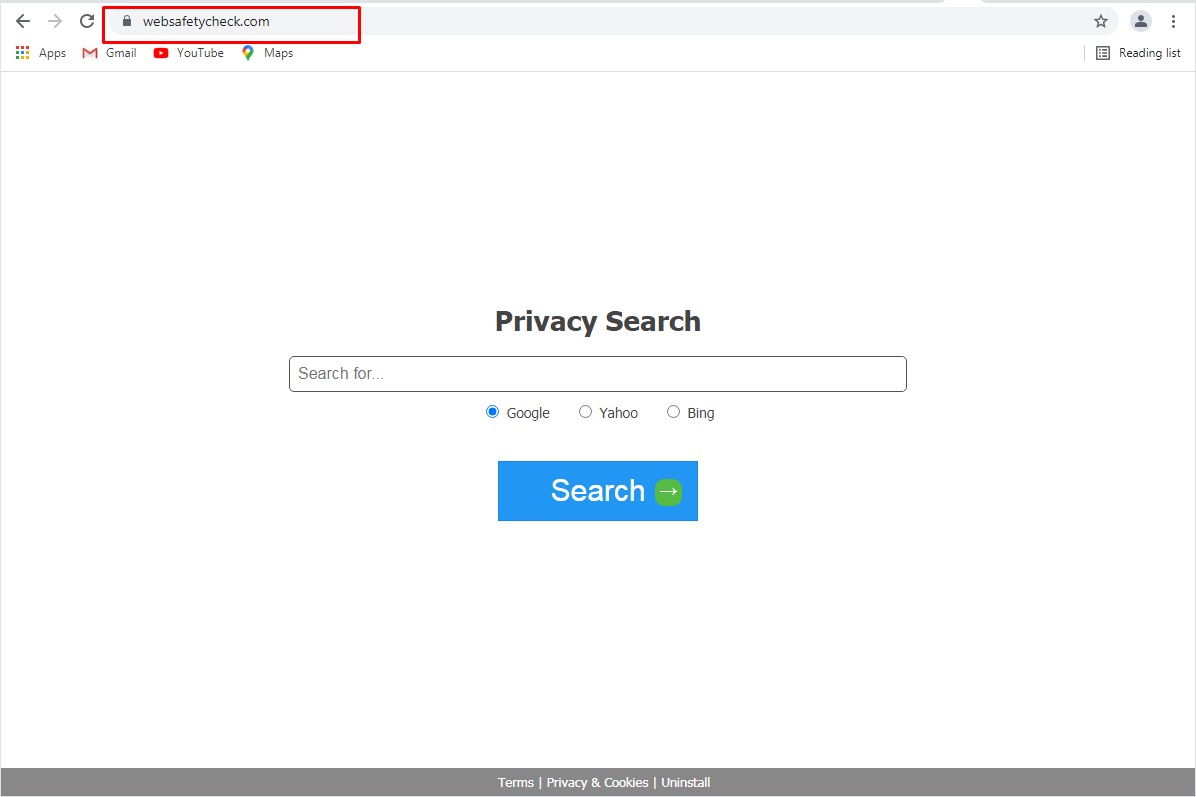The WebSafetyCheck search hijacker is an illustration of a typical unwanted program; such programs are promoted massively nowadays. On this page you will see the comprehensive information of “WebSafetyCheck” hijacker removal in various methods: using anti-malware programs and manual elimination process.
WebSafetyCheck – What is it?
“WebSafetyCheck” search hijacker is a potentially unwanted application (PUA)1, that is promoted as a plugin for your web browser. It is usually advertised as an add-on for Chrome or Firefox, that aids to search some precise details, for instance, about sport events, make your browser much more secure, enable downloading of any type of web video, et cetera. Also, this app adds the “Managed by your organization” feature (on Chrome browsers).
However, the “WebSafetyCheck” plugin is pretty pointless due to the fact that all such features are already embedded to your browser and/or system. Such advertising mottos are targeted at low-skilled computer users, like pensioners or schoolchildren. But in some cases even experienced users are getting caught on such an appeal. In certain scenarios, this hijacker is spread along with free tools.
Here is a summary for the WebSafetyCheck hijacker
| NAME | WebSafetyCheck |
| Site | Websafetycheck.com |
| Hosting | AS14061 DigitalOcean, LLC United States, Clifton |
| Infection Type | Browser Hijacker, Unwanted Application |
| IP Address | 159.203.98.98 |
| Symptoms | Changed search engine; search queries redirection |
| Similar behavior | Seekforsearch, Prefer, Askmeus |
| Fix Tool | To remove possible virus infections, try to scan your PC |
How harmful is WebSafetyCheck hijacker?
Besides its impracticality, WebSafetyCheck hijacker is likewise rather harmful for web browser use. It transforms your search engine to its particular – Websafetycheck.com, and additionally alters your background, adding its watermark on your background image (or, occasionally, altering it to default with the mentioned symbol).
Besides aesthetic adjustments done by WebSafetyCheck hijacker, you might notice that a number of your search questions are redirecting to the untrustworthy web pages, filled with links and promotions – so-called doorway sites. Such websites can consist of web links for malware downloads. The chance of redirecting increases if you try to launch Google search page forcibly.
But all these activities are much more irritating than truly destructive. The main hazard, particularly for people who have a great deal of secret information in their web browsers, is installed in information gathering functions. Cookie files, conversations, often-visited websites, as well as various other activities are easily gathered by WebSafetyCheck hijacker.
How to remove WebSafetyCheck search hijacker?
- Download and install GridinSoft Anti-Malware.
- Open GridinSoft Anti-Malware and perform a “Standard scan“.
- “Move to quarantine” all items.
- Open “Tools” tab – Press “Reset Browser Settings“.
- Select proper browser and options – Click “Reset”.
- Restart your computer.
Browser hijackers are typically fairly simple to deal with. For the most part, they have an independent application that can be found in the list of installed programs. As a result of the certain marketing tactic of WebSafetyCheck hijacker, it can be conveniently tracked and deleted manually. Nonetheless, if you got WebSafetyCheck in the package with a free applications, your PC may be infected with far more harmful malware – trojans, spyware and even ransomware. That’s why I’d recommend you make use of anti-malware programs to remove the WebSafetyCheck PUA and all other malware.
You can utilize Microsoft Defender2 – it is capable of detecting and eliminating various malware, including mentioned hijacker. Nevertheless, serious malware, that might be present on your personal computer in the discussed situation, can disable the Windows antivirus program by modifying the Group Policies. To stay clear of such situations, it is better to utilize GridinSoft Anti-Malware.
To detect and delete all unwanted programs on your desktop with GridinSoft Anti-Malware, it’s better to use Standard or Full scan. Quick Scan is not able to find all the malicious programs, because it scans only the most popular registry entries and folders.
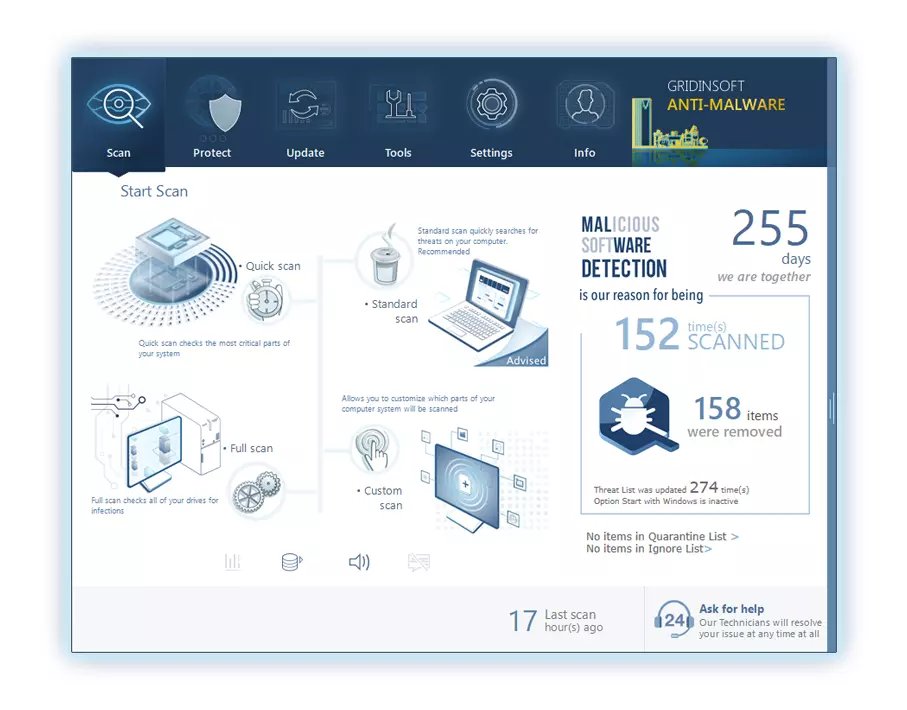
You can see the detected viruses sorted by their possible harm during the scan process. But to choose any actions against the viruses, you need to hold on until the scan is over, or to stop the scan.
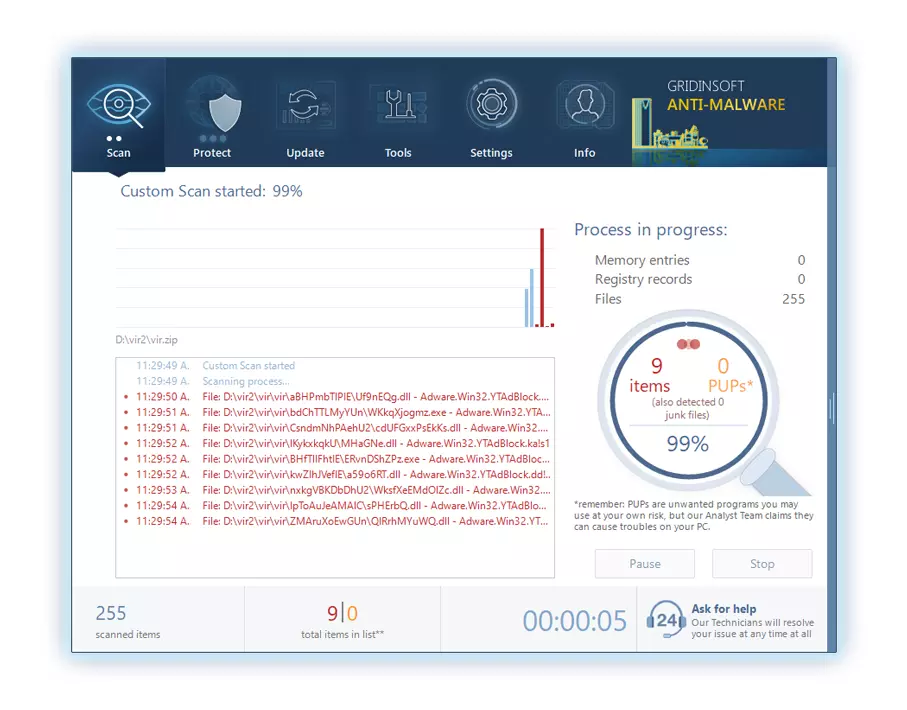
To set the action for each detected malicious or unwanted program, click the arrow in front of the name of the detected malicious app. By default, all the viruses will be moved to quarantine.
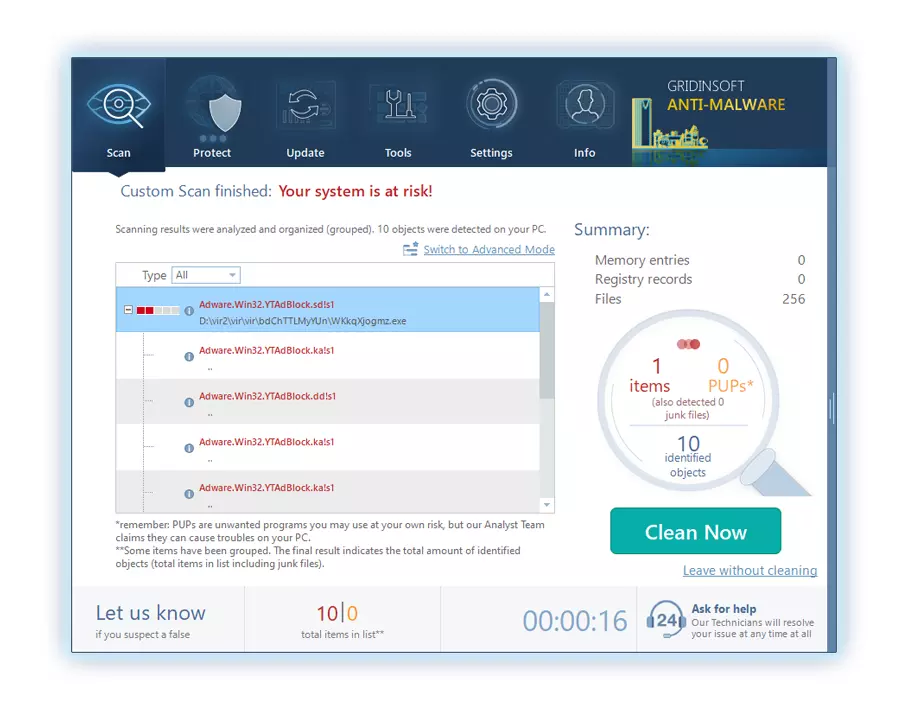
Reset browser settings to original ones
To revert your browser settings, you need to use the Reset Browser Settings option. This action is not able to be intercepted by any malware, hence, you will surely see the result. This action can be found in the Tools tab.
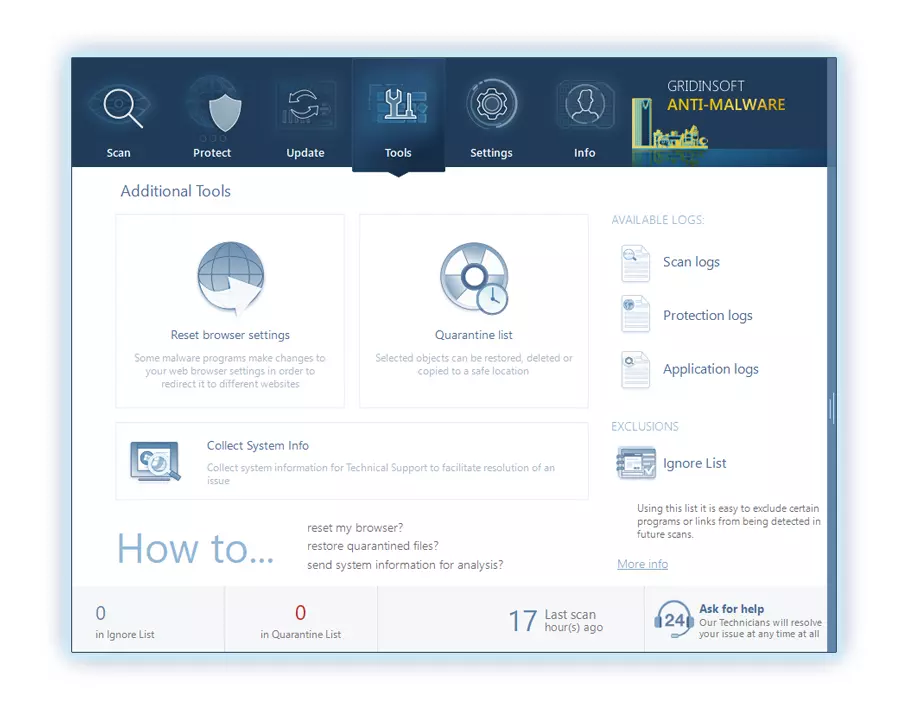
After pressing the Reset Browser Settings button, the menu will be displayed, where you can choose, which settings will be reverted to the original.
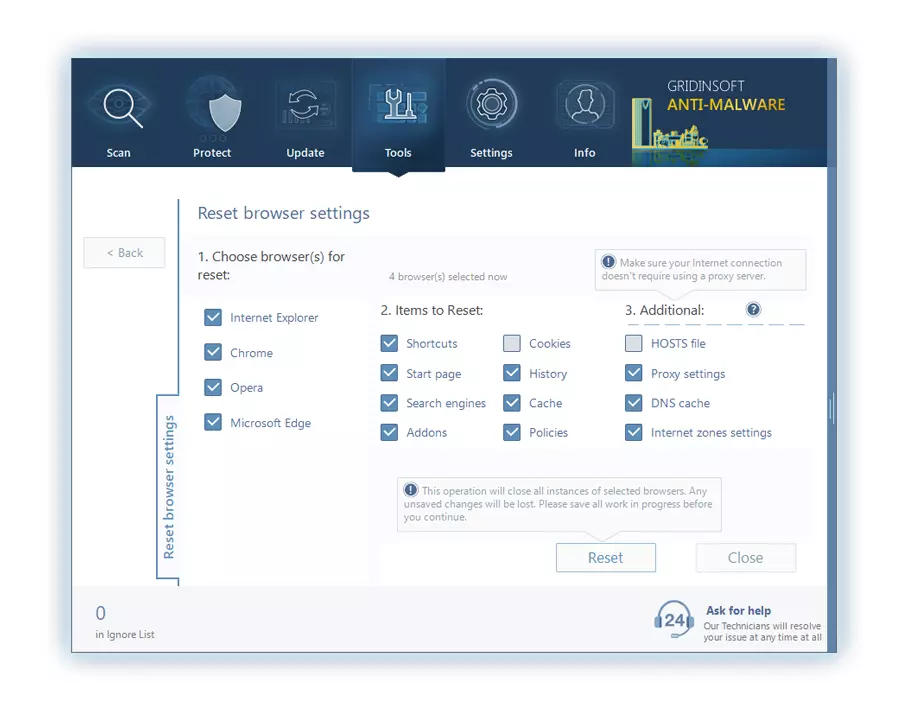
Deleteing WebSafetyCheck hijacker manually
Besides using anti-malware software for browser restoration, you may choose the “Reset browser settings” function, which is usually embedded in all popular browsers.
To reset Edge, do the following steps :
- Open “Settings and more” tab in upper right corner, then find here “Settings” button. In the appeared menu, choose “Reset settings” option :
- After picking the Reset Settings option, you will see the following menu, stating about the settings which will be reverted to original :
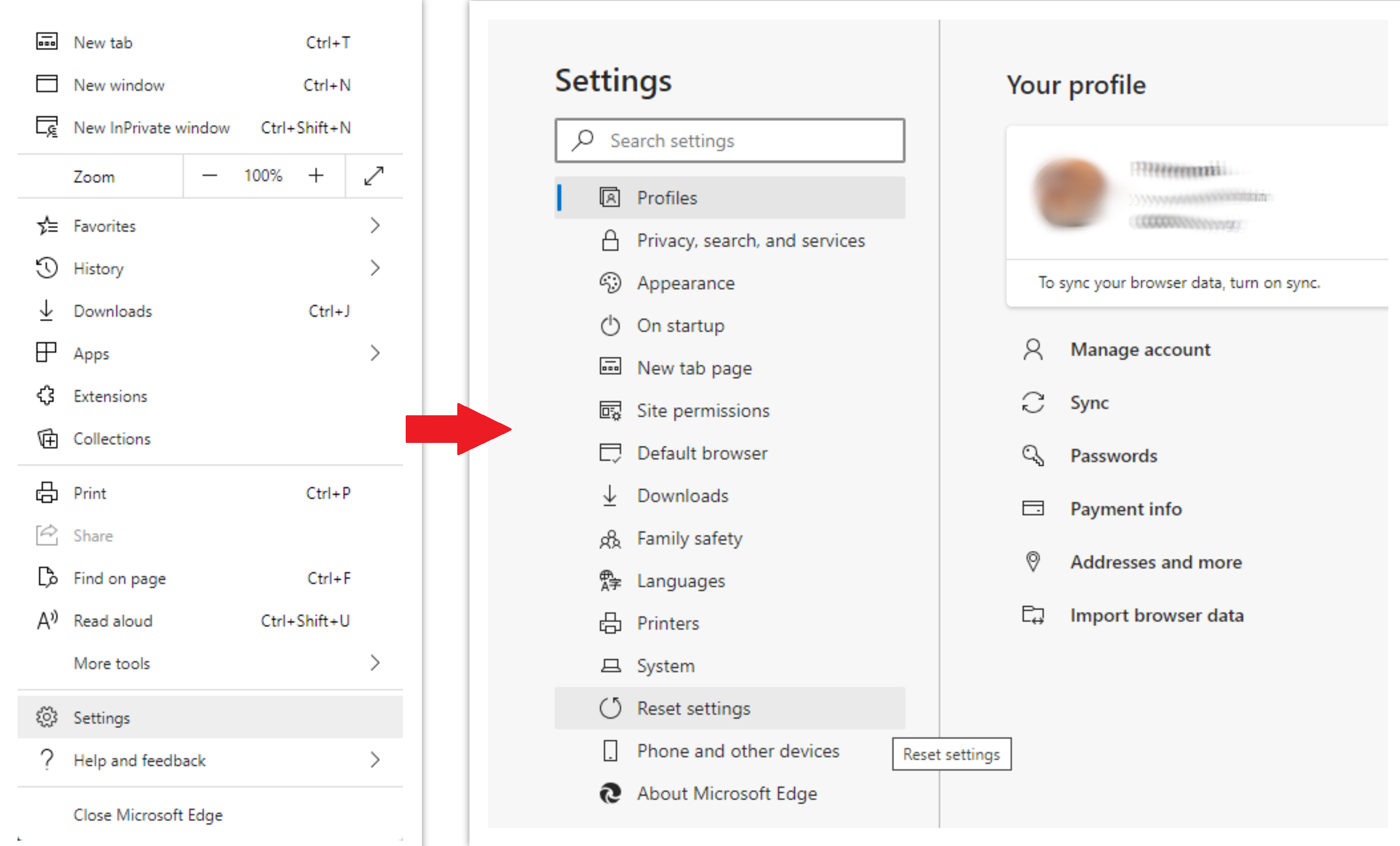
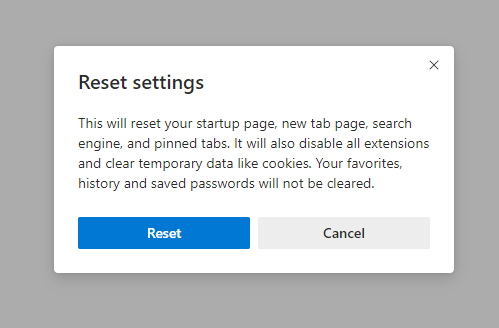
For Mozilla Firefox, do the next actions :
- Open Menu tab (three strips in upper right corner) and click the “Help” button. In the appeared menu choose “troubleshooting information” :
- In the next screen, find the “Refresh Firefox” option :
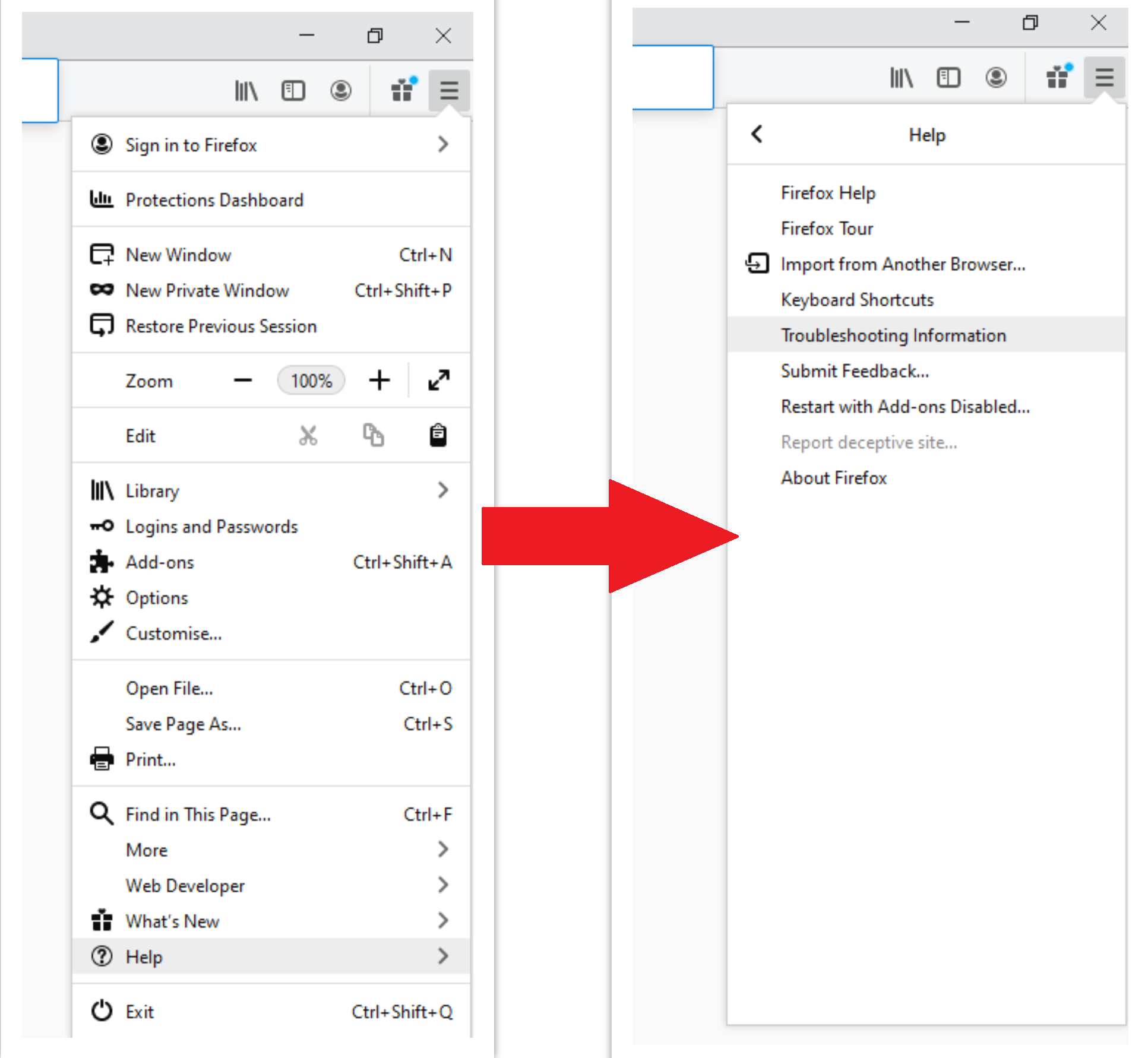
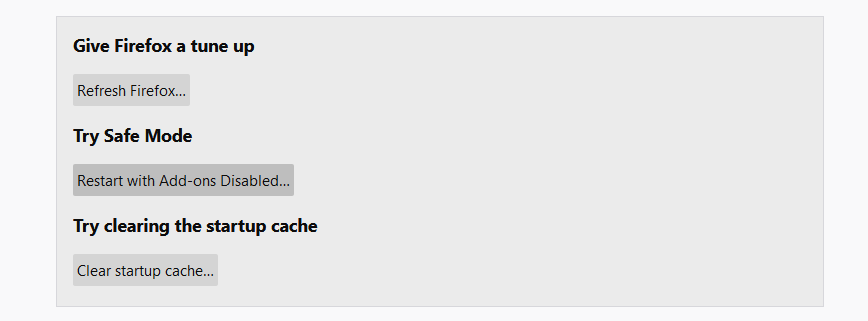
After choosing this option, you will see the next message :
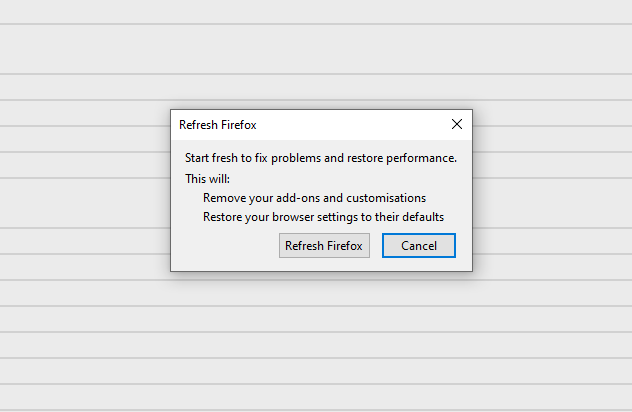
If you use Google Chrome
- Open Settings tab, find the “Advanced” button. In the extended tab choose the “Reset and clean up” button :
- In the appeared list, click on the “Restore settings to their original defaults” :
- Finally, you will see the window, where you can see all the settings which will be reset to default :
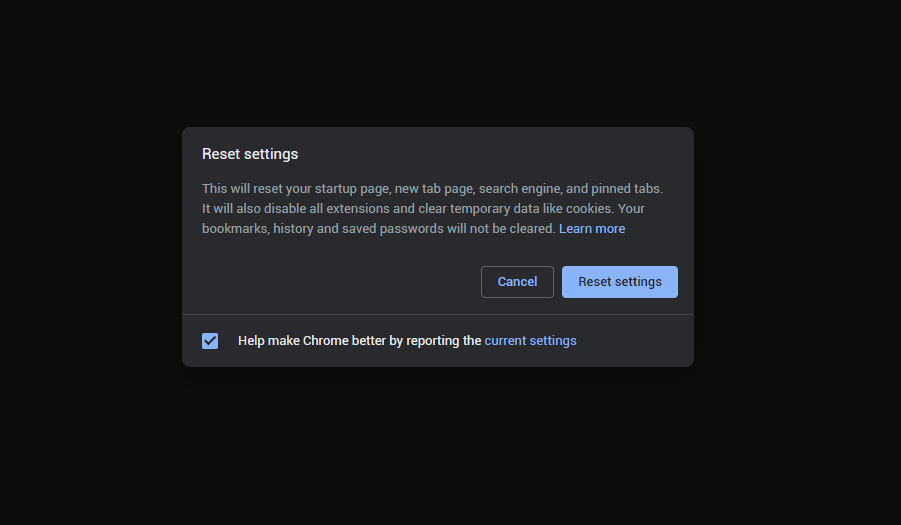
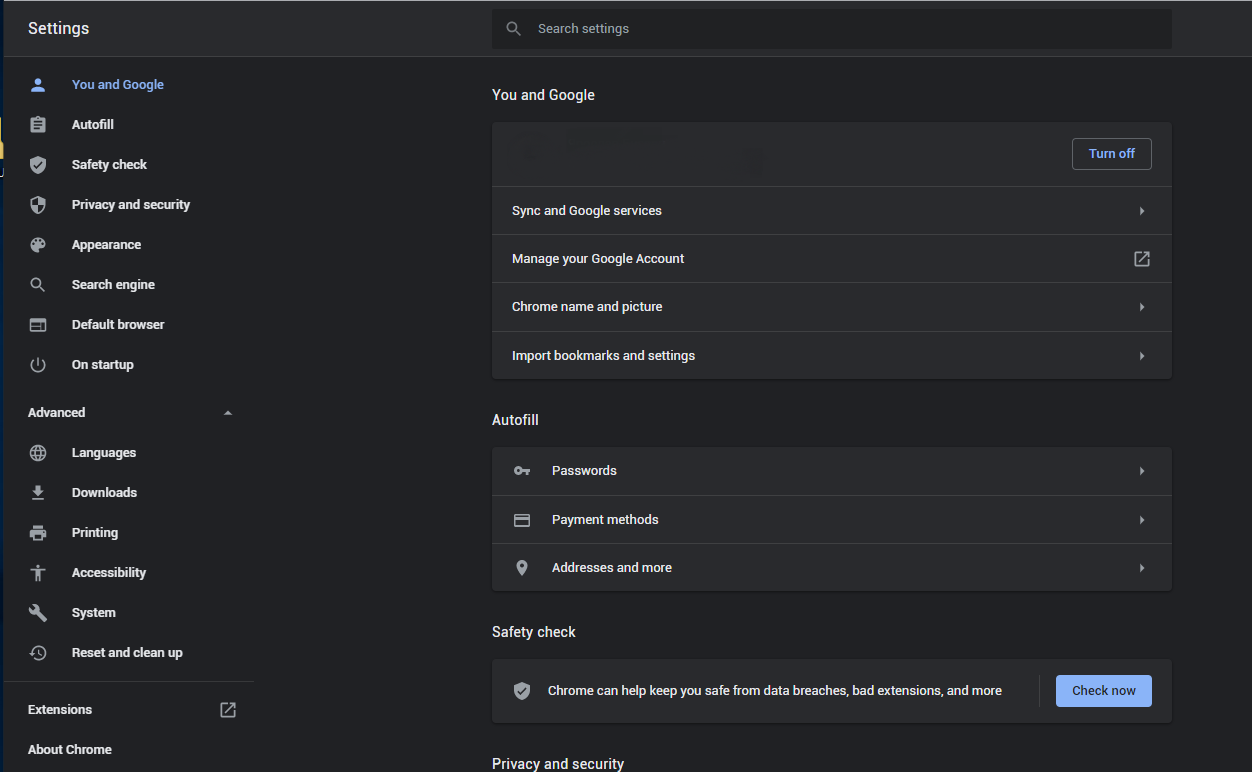
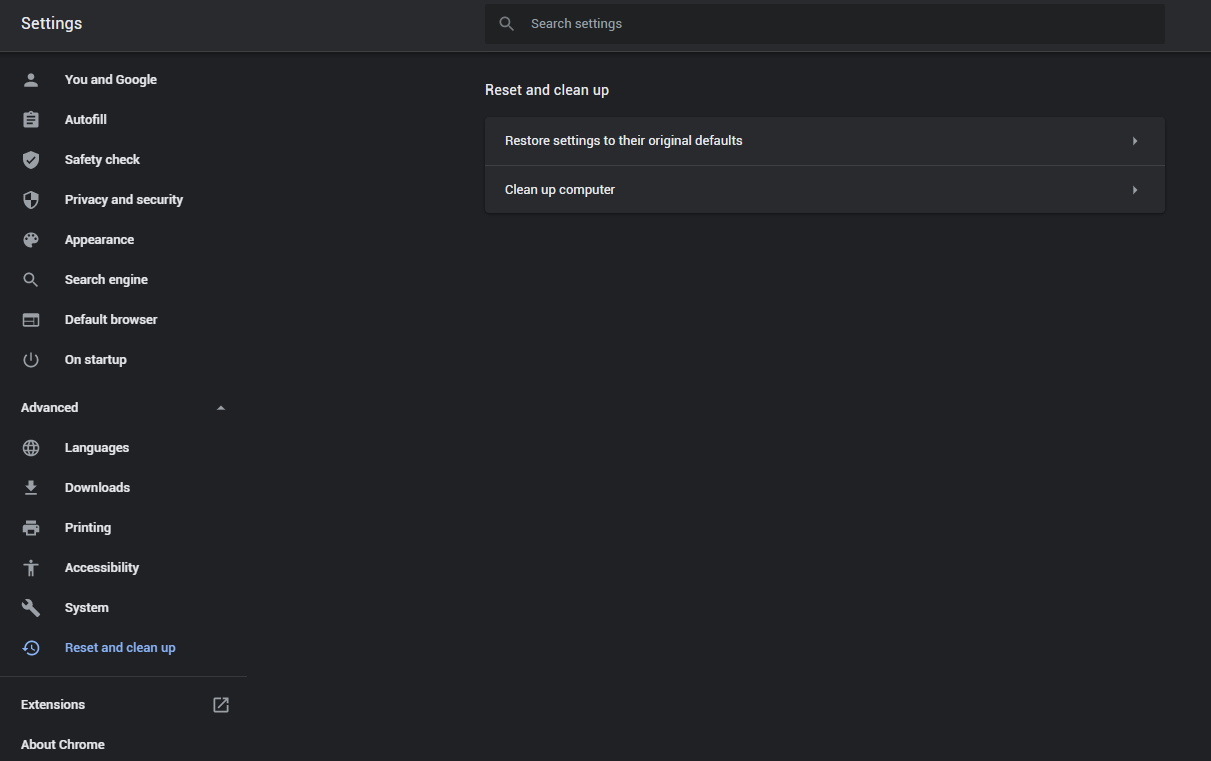
Opera can be reset in the next way
- Open Settings menu by pressing the gear icon in the toolbar (left side of the browser window), then click “Advanced” option, and choose “Browser” button in the drop-down list. Scroll down, to the bottom of the settings menu. Find there “Restore settings to their original defaults” option :
- After clicking the “Restore settings…” button, you will see the window, where all settings, which will be reset, are shown :
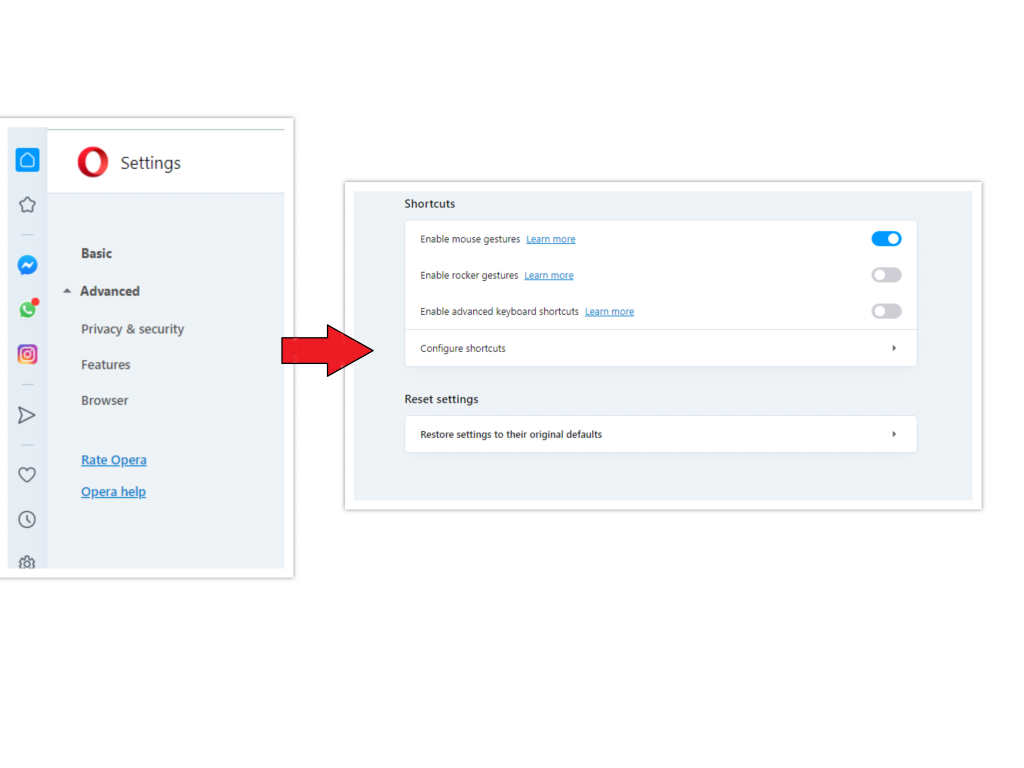
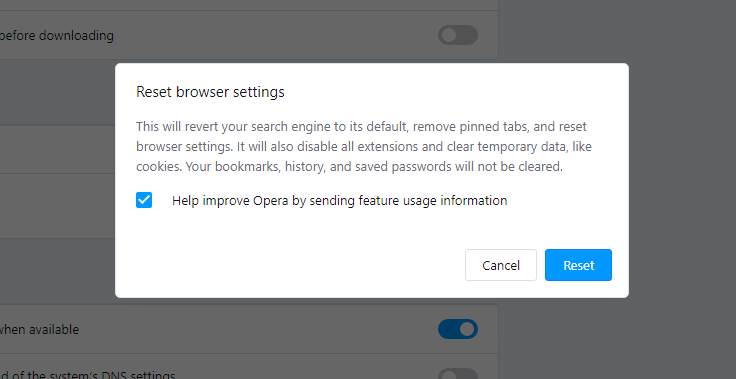
As an afterword, I want to say that time plays against you and your PC. The activity of browser hijacker must be stopped as soon as possible, because of the possibility of other malware injection. This malware can be downloaded autonomously, or offered for you to download in one of the windows with advertisements, which are shown to you by the hijacker. You need to act as fast as you can.
I need your help to share this guide.
Browser hijackers are among the largest and also disruptive kinds of malware. I published this article to help you, so I wish you will help me to make the computer world completely clean of malware. Please, share this article in the social networks you use – Twitter, Reddit, Facebook – wherever.
.
Wilbur WoodhamHow to Remove WebSafetyCheck?

Name: WebSafetyCheck
Description: WebSafetyCheck - a lot of users became a victim of browser hijacker. I have a lot of friends who literally bombed me with the questions like “how to remove WebSafetyCheck?”. In this article we will show you how to deal with WebSafetyCheck (Websafetycheck.com), which may corrupt your browser’s correct performance, and create a lot of troubles while you are working.
Operating System: Windows
Application Category: Browser Hijacker
User Review
( votes)References
- More information about PUAs
- Detailed review of Microsoft Defender


